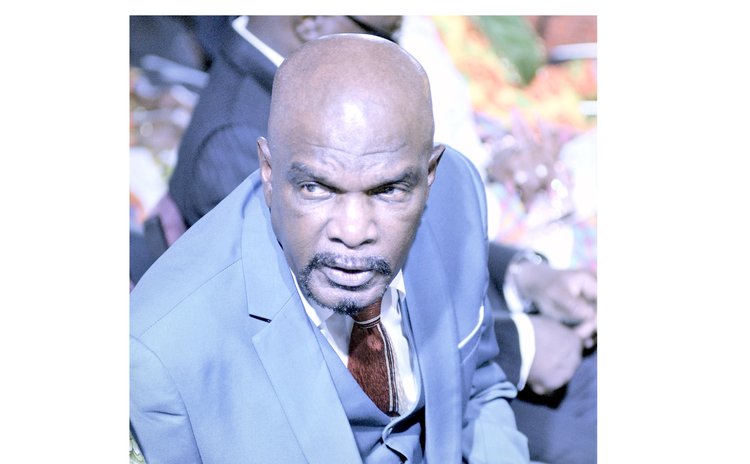My Contribution to the Electoral Reform Debate
By Former Prime Minister Oliver J .Seraphin

Background
It is my obvious responsibility to add my voice to the consultation on electoral reform now ongoing as one of the living founders of our nation. Also, having then been the President of the ruling party and Minister of Government, which sought and got our independence from the Government of Great Britain. This heralded our new constitution on 3rd November of 1978. So, I am duty-bound as a statesman to respond to the call for contributions to electoral reform and our constitution.
Let not my contribution be regarded as an attack on anyone, as did my earlier contribution on dual citizenship and the constitutional prerequisites of our constitution.
I did advise a client who was spurious to equally assist both political parties in Dominica with a budget of $400,000 for the respective party's campaign finance, not diplomatic passports in an imminent election. This is far less than what current discussions of Byron and others are now speculating on as equitable campaign finance reform.
Sir Dennis Byron
The final voice on our national direction must allow other eminent voices over the years- local, regional, and international--to be heard, as Byron acknowledged in his report. Indeed, the very observers who are present at the discussions of this current time should, too, as very eminent authorities by their very presence and past contributions be allowed to offer their guidance.,
Their findings and advice should be made available to the public as the core value of our perception of our democracy is transparency.
Diaspora and the Overseas Votes
The role of the large population of emerging alien CBI citizens and long estranged Dominicans, which can compete with indigenous-home Dominicans and their ability to influence future governments, is now a matter that requires attention. This certainly begs the apparent need to have registration done for all citizens only in Dominica with time residences within five years.
Consequently, the answer lies with the direction of residence set by the original intent of our constitution, which I, as a participant, understand that being resident was our intention. We also intended to have persons registered in a constituency to vote in their constituency of residence. This did amply demonstrate the purpose and rationale that one must prove residency as a condition of that right to vote. Voter ID is recommended.
In effect, the focus on overseas voters by all and sundry may have lost the reality that this focus on overseas votes may not need to be so. People who live here should determine the Government to respond to their needs in this country where they live and be subjected to its challenges and benefits, whichever apply.
OECS, Commonwealth and electoral reform
The Byron report may have to be viewed through the lenses of that which already obtains and exists effectively and seamlessly on the shores of St. Kitts and other OECS states. We have established the economic union, the free movement of people and the pursuit of integration as ascribed to by the treaty of Basseterre and subsequent accommodations; why then is there not commonality of OECS electoral practices as guidelines and guard rails to protect our democracy, including voters ID card?
I believe that the Commonwealth right to vote as defined in our constitution is colonialist in intent and is now irrelevant to our Republic. That right should indeed be given directly to OECS citizens.
This region's unity to speak with one voice was prompted by the underlying efforts of the earlier One Caribbean-St. Georges Declaration by those of us who agreed to that Declaration in St Georges Grenada and were Prime Ministers –Maurice Bishop, Allan Louisy of St. Lucia, and I in 1979 -1980. This merged in part as the motivation for the St. Kitts Basseterre OECS declaration in 1981.
St. Georges Declaration -One Caribbean was a principle of political integration. Why are the positive aspects of other OECS states economic union and the Free movement of our people, etc., not included and guided by the electoral reforms of other OECS states?
Constitutional Reform
The Electoral reform is a cause that could be equally served in discussions on our Constitutional reform, which Byron may have been less than forceful; we did lead the OECS with our Republican constitution of 1978.
We are squandering that opportunity to revisit the constitution of our Republic with the enthusiasm of this electoral reform consultation exercise as suggestions for improvement are intertwined. We should now seek adjustments and meaningful constitutional changes to reflect the pertinent present-day advocacies.
The Telford Georges report of 1999 and the short-lived initiative of Dr. NJO Liverpool begs for attention. This is a moment that, if lost, this momentum will not easily be regained. NOW IS THE TIME.
The Presidency
What screams for our attention outside of Byron is the relevance of constitutional change in the role of our President as we agree that the present system seems to observe the inadequacy of the influence of that office as is and the imperatives to construct the URGENCY for constitutional change for establishing a national election to that office. As such, a constitutional change through a referendum may be imperative. The presence of the 2/3 majority of the present Government in the House of Assembly has authority to begin this process. What are we waiting for in the context of modernization?
(To be continued)




